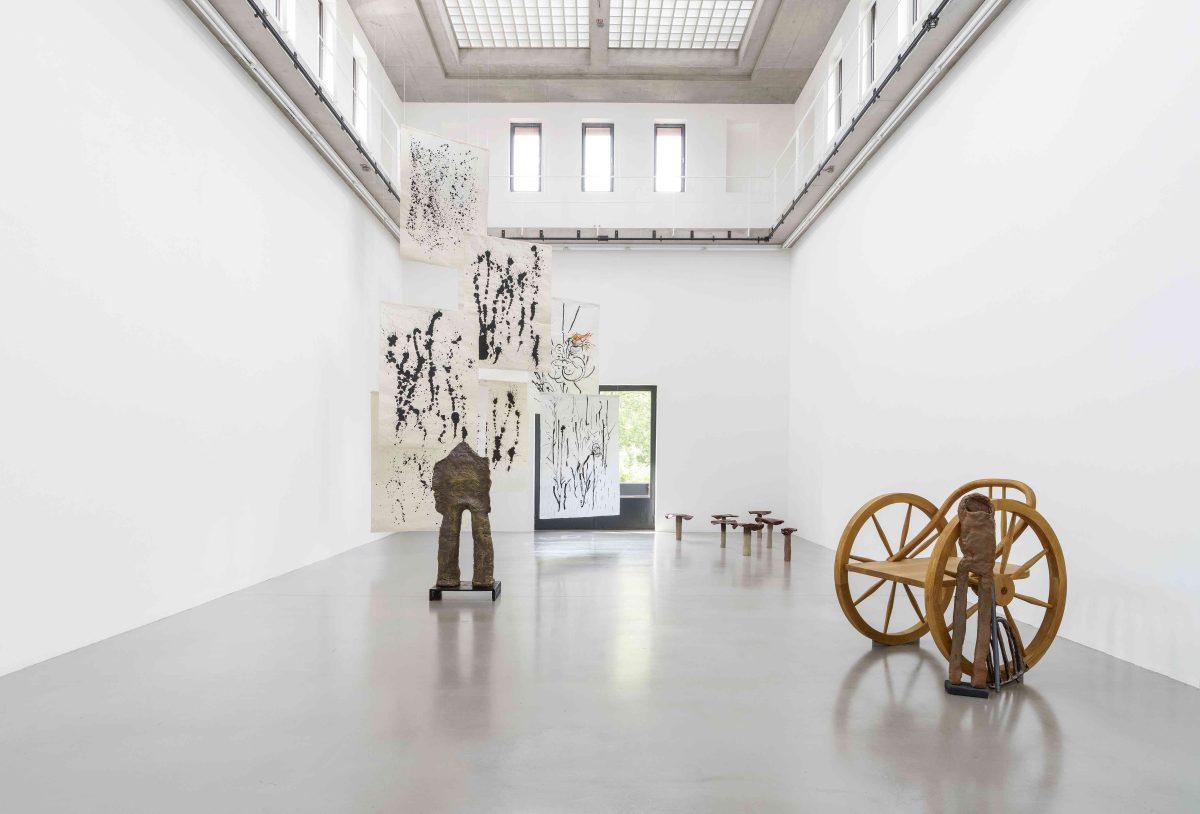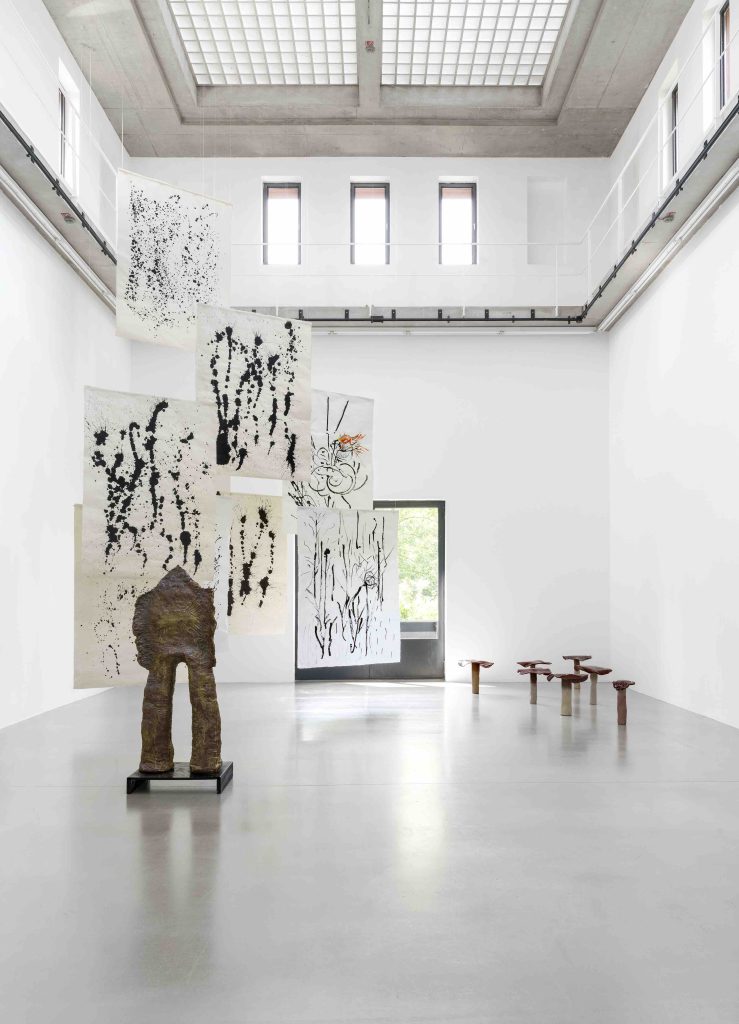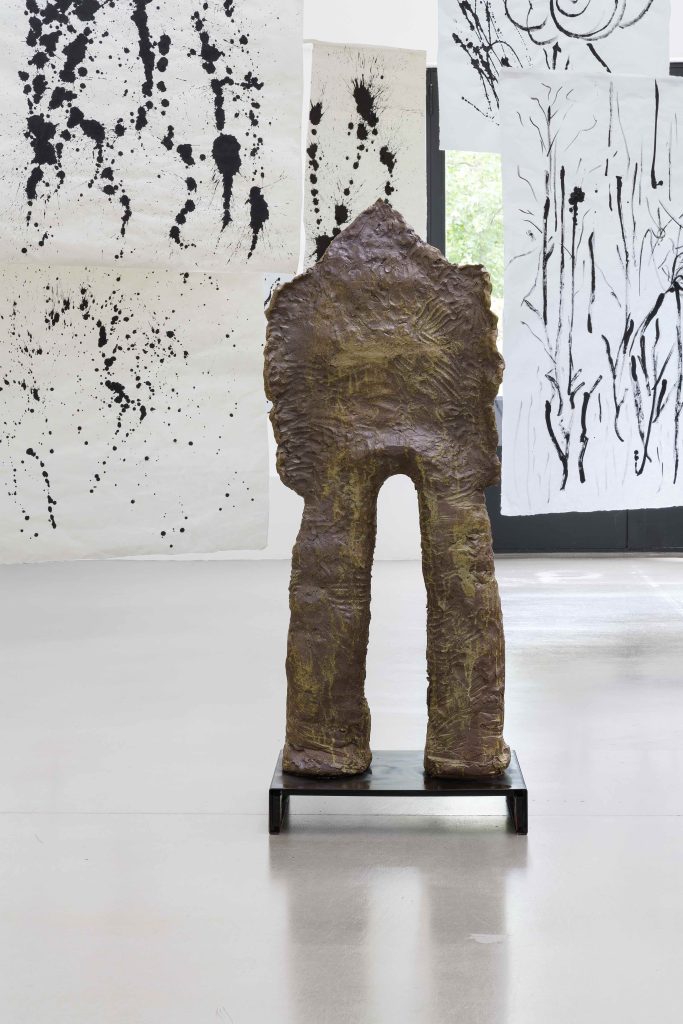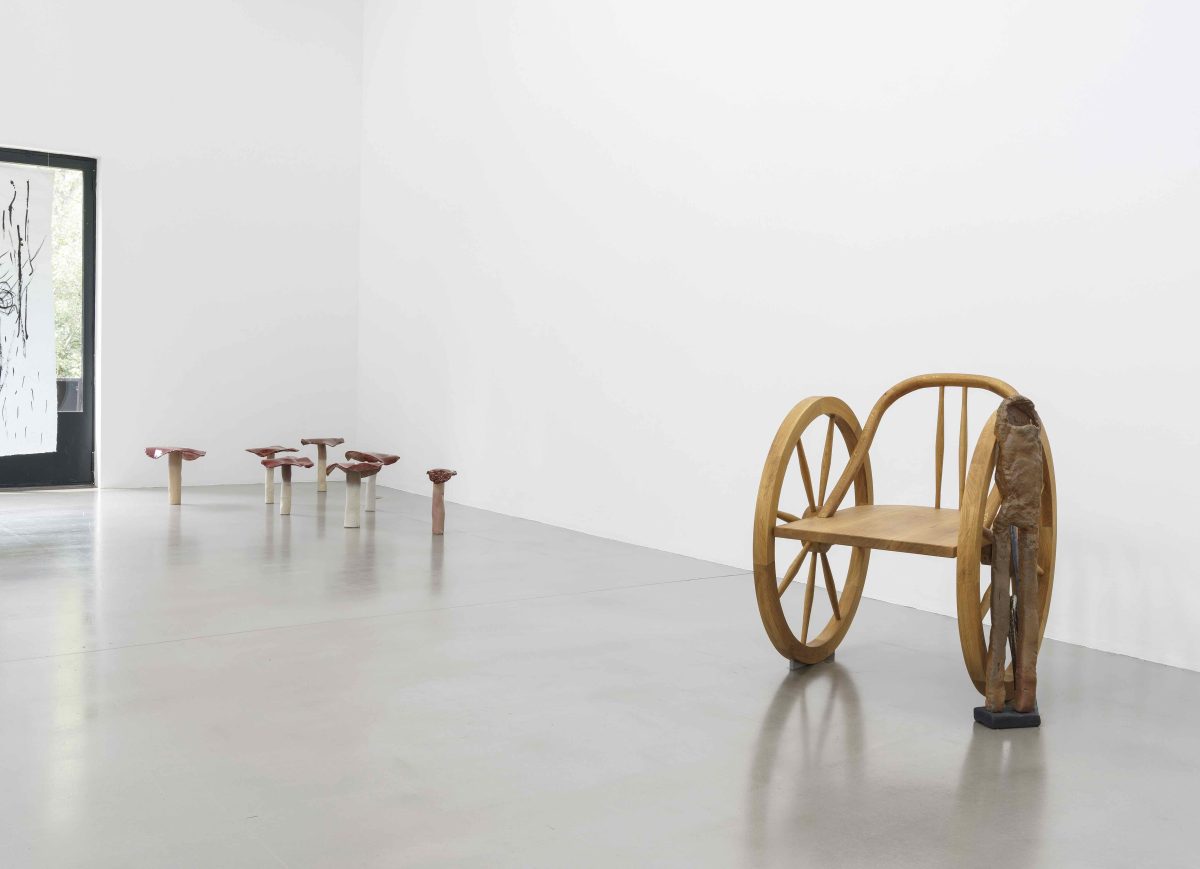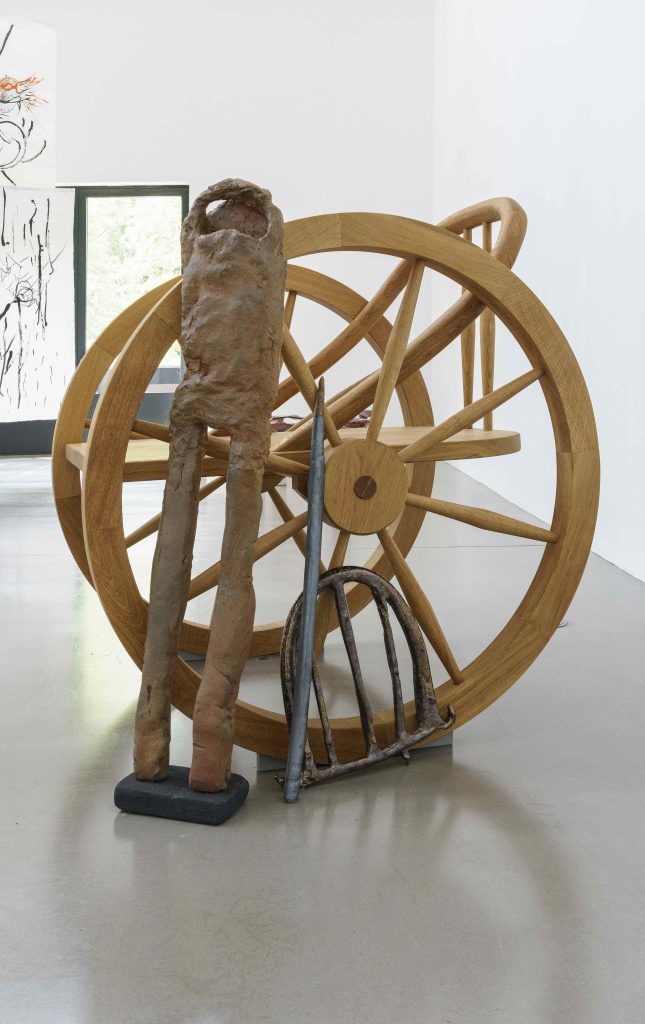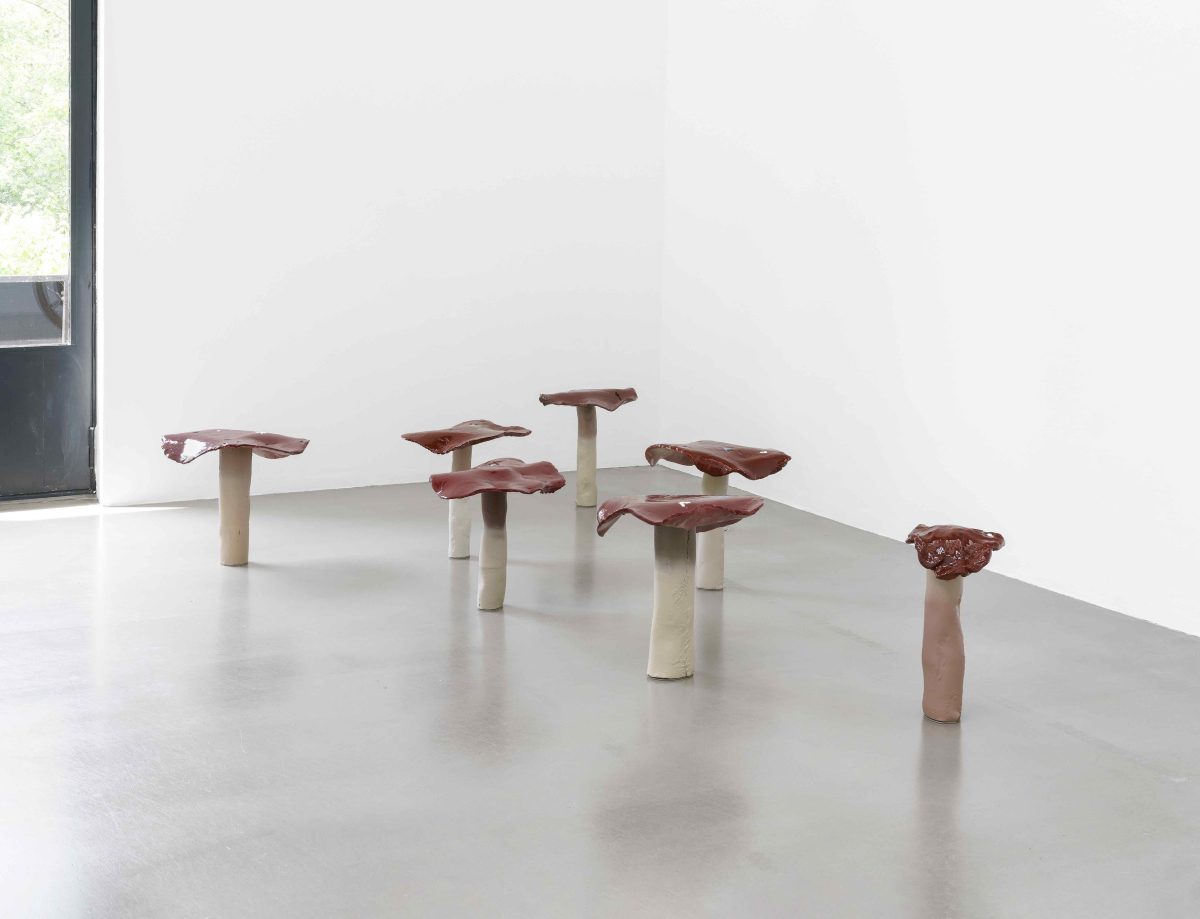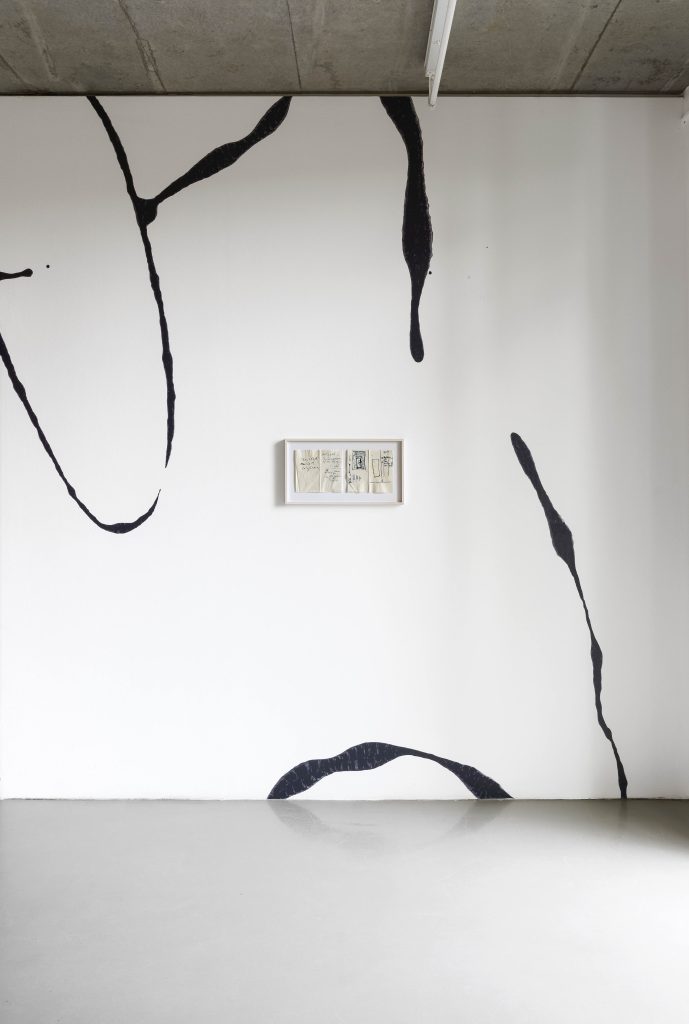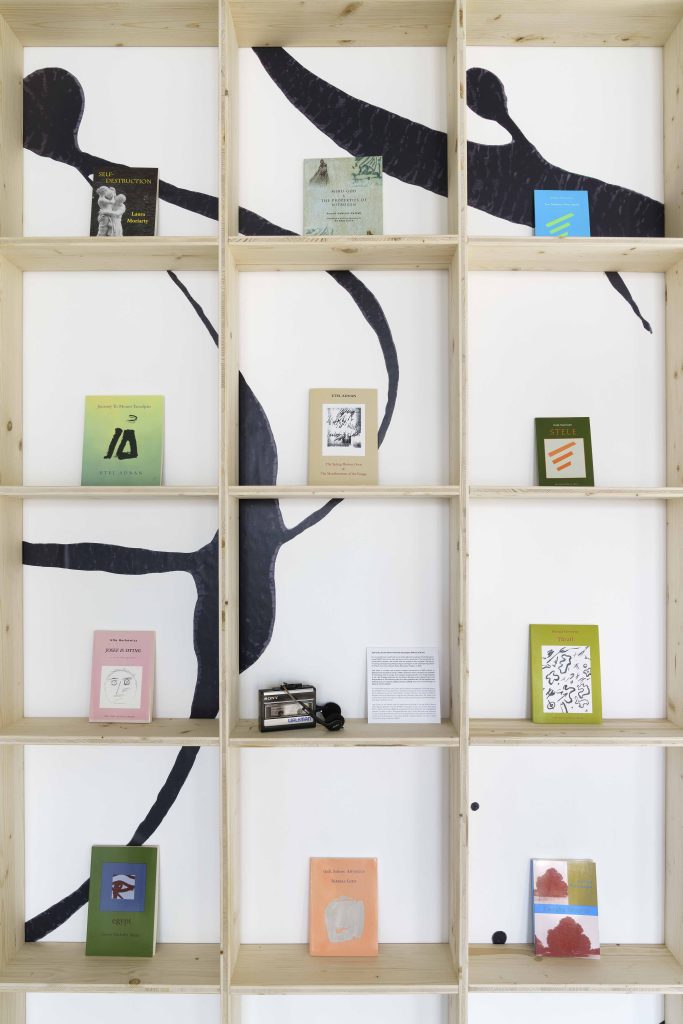
- This event has passed.
The Manifestations of the Voyage
Simone Fattal’s itinerant biography is marked by fault lines, all of which have shaped her prolific artistic practice of nearly fifty years. Growing up amidst both the extensive heritage of the historical region of Syria and Lebanon and the tumultuous aftermath of the Franco-British partition of the Ottoman Empire, she encountered from an early age the clash between the timeless knowledge of ancient civilizations and the scars of war in her homeland. Fattal studied philosophy in Beirut and in Paris in the 1960s, where she later attended archaeology classes, and delved into publishing and sculpture after relocating to Sausalito, California, in 1980, during the upheaval of the Lebanese Civil War (1975–90). With an insatiable curiosity for antiquity and modern history and informed by gender politics, Fattal has defied both conventional categorizations of artistic media and cultural identity. For her exhibition The Manifestations of the Voyage, she has created a new body of work that explores the contemporary human condition and our fragile relationship to nature by finding inspiration in the mythological figures of the ancient past. Highlighting the interconnectedness between the written word and visual forms of expression, the presentation at Portikus gives equal prominence to Fattal’s simultaneous practice as an artist and publisher by dedicating a reading room to a comprehensive selection of books released by The Post-Apollo Press (1982–2017), that can be read on site.
Books have harnessed a crucial role in Fattal’s imaginary. Her sculptures, collages, and drawings are inflicted by leitmotifs and characters culled from her reading about Sufism and Islamic mysticism, Greek epic poems and Egyptian mythology, among other. The Mesopotamian Epic of Gilgamesh (c. 2100-1200 BCE), originally written in Akkadian and only first translated to a Western language at the end of the nineteenth century, holds a special space in the artist’s library. Its protagonist, the mighty King of Uruk as well as his devoted friend Enkidu have served as archetypes for human frailty in many of Fattal’s works. The main gallery houses a colossal standing figure of Humbaba (2023) depicting the eponymous guardian of the Cedar Forest. For the artist, the defeat of Humbaba, described as the reckless and greedy deed of Gilgamesh in cutting down the trees of the forest, is indicative of the fatalistic relationship between man and the natural world and the deforestation which continues to this day. Presented alongside a series of large, ink drawings of trees (The Forest, 2023) suspended from the ceiling, together with Mushrooms (2023) scattered throughout the space, the mythological noble giant yet again emerges as a protective figure but also as a reminder of our own mortality. Set against the backdrop of the natural setting of the Main Island, Fattal’s Young Man (2023), a figure reclining against The Chariot (2023) stands as an allegory for future generations. In placing the works facing Humaba in his forest, the artist aims to make us reflect on the ongoing journey of mankind, which, although tragic, bears the echo of hope. By creating a visual dialogue across historical registers and means of representation, Fattal emphasizes the paradox of these works, that while massive in size, their materiality points to their fragility.
The library in the lower exhibition space is dedicated to her publishing venture The Post-Apollo Press and highlights her commitment to promoting the work of writers from various backgrounds. After settling in California with her lifelong companion, the painter and poet Etel Adnan (1925–2021), Fattal founded the publishing house with a focus on experimental poetry and prose in 1982. Featuring writers such as Marguerite Duras, Barbara Guest, Fanny Howe, Muhyiddin Ibn al-’Arabi, Elfriede Jelinek, Jalal Toufic, and Rosemarie Waldrop, The Post-Apollo-Press created a bridge between voices from the U.S., the Middle East, and Europe, and played a key role in bringing literature to new audiences through translation. On the walls of the reading room is Holzwege (2023), a wallpaper reproducing the artist’s drawing specially created for the exhibition. To mark the collaborative effort behind Fattal’s activity as a publisher, writer and philosopher Jalal Toufic and artist and writer Ala Younis have been invited to contribute audio pieces centered on The Post-Apollo Press.
Two paper napkins adorn a wall of the reading room and can be read as an epilogue to the exhibition. Imbued with an ethereal presence, these ephemera bear the intertwined handwriting of Fattal and Adnan, capturing a fleeting moment spent together at Tony’s Café in Marshall, California, in 1989. Among the written notes and drawings is the inscription ‘The Manifestations of Voyage’, the title of a poem by Adnan that Fattal published, reflecting the profound creative bond the two artists shared in their voyage through the seen and the imagined.
The Manifestations of the Voyage is accompanied by the artist’s first monograph published by Portikus and Hatje Cantz. Combining essays by long-time companions and new scholarly contributions from international authors, the publication focuses on Simone Fattal’s role as an artist and as a publisher of The Post-Apollo-Press. With contributions by Etel Adnan, Liberty Adrien, Carina Bukuts, Steve Dickison, Edwin Nasr and Yasmil Raymond. The book is designed by SP Millot, Paris, and will be released in September 2023.

